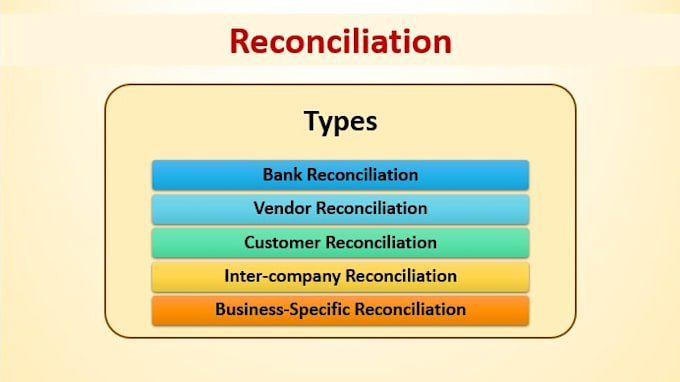Real Estate Novelist: The Intersection of Property and Storytelling
Understand the real estate novelist
The term” real estate novelist” gain widespread recognition through billy Joel’s iconic song” piano man,” where he mentions” Paul is a real estate novelist. ” This curious phrase has sparked debate about whether it refer to a specific profession or serve as a metaphorical description.
In the strictest sense, a real estate novelist is not a formal profession with standardized qualifications. Quite, it describes someone who bridge two distinct worlds: real estate and creative writing. This unique combination can manifest in several ways.
Origins in popular culture
Billy Joel’s 1973 hit” piano man ” mmortalize the concept with the line: “” uPaul a real estate novelist who ne’er have time for a wife. ” wheWhenk about this character, joeJoelplain that pauPauls base on a real person who work in real estate but aspire to write a novel. This character represent many professionals who balance practical careers with creative ambitions.
The phrase capture the essence of someone with unfulfilled creative aspirations — a theme that resonate with many people work in various fields while harbor artistic dreams.
Interpretations and definitions
The literal interpretation
In its virtually literal sense, a real estate novelist could be:
- A real estate professional who write novels in their spare time
- An author who specialize in fiction center around property markets, developments, or real estate transactions
- Someone who write detailed, narrative style property listings or descriptions
The metaphorical meaning
Metaphorically, the term suggests someone who embellish or romanticize reality — peradventure a real estate agent who create elaborate narratives around properties to make them more appealing to potential buyers.
This interpretation align with how some real estate professionals craft stories around properties, highlight their history, character, and potential to create emotional connections with buyers.
Real estate write in practice
Property descriptions as narrative art
Exceptional real estate professionals understand the power of storytelling. Kinda than but list features, they create narratives that help potential buyers envision their lives in a space:
” nNestleamong century old oaks, this craftsman bungalow has witness generations of family gatherings on its wraparound porch. The kitchen, with its hand hew beams and farmhouse sink, await your holiday feasts and morning coffees. ”
This narrative approach transforms a simple property list into an emotional journey, help buyers connect with a property on a deeper level.
Content marketing in real estate
Today’s real estate professionals progressively use content marketing strategies that incorporate storytelling:
- Blog posts about neighborhood histories and transformations
- Client success stories that read like mini novels
- Video tours narrate with compelling storylines
- Social media content that create ongoing narratives about properties and communities
These approaches demonstrate how the concept of a” real estate novelist ” as evevolvedn the digital marketing era.
Literary works center on real estate
Real estate has provided rich material for novelists throughout literary history. Property, later entirely, oftentimes represent deeper themes of belong, status, security, and aspiration.
Classic literature
Many classic novels feature real estate as a central element:
- ” tThegreat gGatsby” By f. Scott Fitzgerald use Gatsby’s mansion as a symbol of the American dream
- ” hHowardsend ” By e.m. Forster explore the meaning of home and inheritance through property
- ” tThehouse of mirth ” By Edith Wharton examine how property and social standing intertwine
Contemporary fiction
Modern authors continue to explore real estate themes:
- ” tThecorrections ” By Jonathan Franzen use the family home as a powerful metaphor
- ” fFreedom” By Jonathan Franzen explore gentrification and property development
- ” aAman in full ” By tom Wolfe center on a real estate developer face financial collapse
These works demonstrate how property can serve as both set and symbol, reflect characters’ inner lives and broader social dynamics.

Source: blog.ghostwritingfounder.com
Professional real estate novelists today
Authors specialize in real estate fiction
Some contemporary authors have carved niches write fiction that center on real estate themes:
- Novels about property flipping adventures
- Real estate agency dramas
- Mysteries set in distinctive properties or developments
- Historical fiction trace the evolution of neighborhoods or iconic buildings
These writers oftentimes bring personal experience from the industry, add authenticity to their fictional accounts.
Real estate professionals who write
Many real estate agents, developers, and property managers channel their industry knowledge into writing:
- Memoirs about memorable transactions or career journeys
- Fictionalize accounts base on real experiences
- Short story collections inspire by properties they’ve represented
- Blogs that blend property insights with creative storytelling
These professionals bring insider knowledge that add depth and realism to their creative work.
The value of narrative in real estate
Create emotional connections
Research systematically show that emotional connections drive purchasing decisions, especially for significant investments like homes. A skilled real estate novelist understands how to craft narratives that:
- Help buyers visualize their future lives in a space
- Highlight the unique character and history of a property
- Transform practical features into elements of a compelling story
- Address potential concerns by reframe them within positive narratives
This narrative approach can importantly impact both the speed of sale and the final price.
Building brand differentiation
In a competitive market, storytelling provide a powerful differentiator. Real estate professionals who master the novelist’s craft can:
- Develop distinctive brand voices that stand out in marketing materials
- Create memorable property descriptions that potential buyers remember
- Build narratives around their personal expertise and approach
- Craft compelling case studies that showcase their success stories
These narrative techniques help real estate professionals distinguish themselves in crowded markets.
Develop real estate novelist skills
Essential writing techniques
Those look to develop real estate novelist skills should focus on:
- Sensory details That bring properties to life
- Character development That help buyers see themselves in the space
- Set descriptions That capture neighborhood atmosphere
- Narrative arcs That guide potential buyers through emotional journeys
- Dialogue That capture testimonials and community voices
These literary techniques can transform standard property descriptions into compelling narratives.
Balancing creativity with accuracy
The ethical real estate novelist must balance creative storytelling with factual accuracy. This is mean:
- Create evocative descriptions without misrepresentation
- Use literary techniques to highlight genuine features
- Craft narratives that set appropriate expectations
- Find creative ways to address property challenges frankly
This balance ensure that creative marketing remain within ethical and legal boundaries.
The future of real estate storytelling
Digital storytelling evolution
The concept of the real estate novelist continue to evolve with technology:
- Virtual reality tours enhance with narrative elements
- Interactive storytelling that allow potential buyers to explore different scenarios
- Augmented reality applications that overlay property stories onto physical spaces
- Ai assist content generation that maintain human narrative quality
These innovations expand the possibilities for property storytelling while maintain the human connection that drive real estate decisions.
Cross-platform narrative strategies
Modern real estate novelists work across multiple platforms:

Source: unleashcash.com
- Social media stories that unfold over time
- Podcast series explore property histories and transformations
- Video content that combine visual storytelling with narrative voiceovers
- Email sequences that build anticipation through serialize content
This integrated approach create immersive experiences that engage potential buyers across different touchpoints.
Conclusion
The real estate novelist — whether a literal description of someone who bridge property and creative writing or a metaphorical concept of storyteller in real estate — represent a powerful approach to property marketing and appreciation.
By apply narrative techniques to property descriptions, real estate professionals can create deeper connections with potential buyers. Likewise, authors who explore real estate themes in their fiction tap into universal concerns about home, belong, and place.
In both cases, the intersection of real estate and storytelling remind us that properties are ne’er exactly physical structures — they’re settings for human stories, repositories of memories, and blank pages await new narratives. The real estate novelist, in all interpretations of the term, help us see and appreciate these deeper dimensions of the spaces we inhabit.



